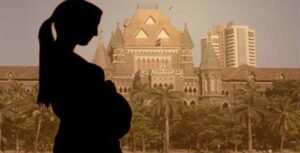Section 27 Evidence Act- Discovery Of Weapon At The Instance Of Accused By Itself Does Not Prove That He Had Concealed Or Used It
Case: Shahaja @ Shahajan Ismail Mohd. Shaikh vs State Of Maharashtra
Coram: Justices Surya Kant and JB Pardiwala
Case No.: CrA 739 OF 2017
Court Observation: (1) Discovery of fact in consequence of an information received from accused; (2) Discovery of such fact to be deposed to; (3) The accused must be in police custody when he gave informations and (4) So much of information as relates distinctly to the fact thereby discovered is admissible – Mohmed Inayatullah vs The State of Maharashtra: AIR (1976) SC 483: (1975) Cur LJ 668 Two conditions for application – (1) information must be such as has caused discovery of the fact; and (2) information must relate distinctly to the fact discovered -Kirshnappa vs State Of Karnataka : AIR (1983) SC 446 : (1983 )Cr LJ 846″
“What emerges from the evidence of the PW-4 & PW-10 resply is that the appellant stated before the panch witnesses to the effect that “I will show you the weapon concealed adjacent the shoe shop at Parle”. This statement does not suggest that the appellant indicated anything about his involvement in the concealment of the weapon. Mere discovery cannot be interpreted as sufficient to infer authorship of concealment by the person who discovered the weapon. He could have derived knowledge of the existence of that weapon at the place through some other source also. He might have even seen somebody concealing the weapon, and, therefore, it cannot be presumed or inferred that because a person discovered the weapon, he was the person who had concealed it, least it can be presumed that he used it. Therefore, even if discovery by the appellant is accepted, what emerges from the substantive evidence as regards the discovery of weapon is that the appellant disclosed that he would show the weapon used in the commission of offence.”
“This Court has time and again impressed upon the necessity of reading over the panchnama which can be used as a piece of corroborative evidence. In spite of this, it is regrettable that the learned trial judge did not take the pains to see that the panchnama was read over to the panch before it was exhibited. A panch nama which can be used only to corroborate the panch has to be read over to the panch and only thereafter it can be exhibited. If the panch has omitted to state something which is found in the panchnama, then after reading over the panchnama the panch has to be asked whether that portion of the panchnama is correct or not and whatever reply he gives has to be recorded. If he replies in the affirmative, then only that portion of the panchnama can be read into evidence to corroborate the substantive evidence of the panch. If he replies in the negative, then that part of the panchnama cannot be read in evidence for want of substantive evidence on record. It is, therefore, necessary that care is taken by the public prosecutor who conducts the trial that such a procedure is followed while examining the panch at the trial. It is also necessary that the learned trial judge also sees that the panchnama is read over the panch and thereafter the panchnama is exhibited after following the procedure as indicated above.
Previous Posts
Karnataka High Court Dismisses Grasim’s Plea Against Increase In Employees Retirement Age To 60 Yrs
S. 50 Of NDPS Act- Presence Of Magistrate During Search Of Contraband Articles Not Mandatory If Accused Waives His Right: Delhi High Court Download Judgement
Keywords
Section 27 Evidence Act, Discovery Of Weapon Section 27 Evidence Act




